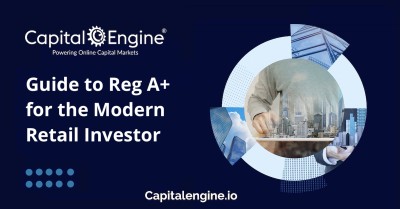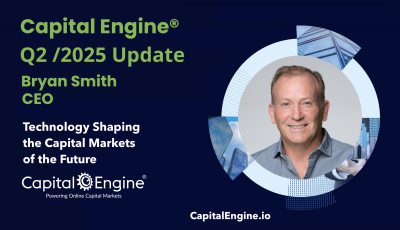REGULATION D EXPLAINED: WHAT ARE REGULATION D OFFERINGS IN REAL ESTATE CROWDFUNDING?

REGULATION D EXPLAINED: WHAT ARE REGULATION D OFFERINGS IN REAL ESTATE CROWDFUNDING?
July, 2020
Post by Tara Mastroeni MillionAcres
Real estate crowdfunding or the practice of funding a real estate investing venture by raising a small amount of money from a large number of people, typically over the internet, has been gaining in popularity over recent years. To that end, investors who hope to use this method to get their funds off the ground need to be familiar with the various crowdfunding models that are available to them, of which Regulation D transactions are one.
With that in mind, below we'll explore the Regulation D exemption, including how it started and the changes it's gone through over the years, and take a closer look at the two models of Regulation D offerings that are available to those who wish to crowdfund today. Read on to learn more about whether a Regulation D offering is the right choice for your company.
What is Regulation D in relation to the Securities Act of 1933?
Before going any further, it's important to note that SEC Regulation D is different from Federal Reserve Board Regulation D. While the former has to deal with the reporting requirements for public offerings, the latter is a regulation that places limits on withdrawals from savings accounts. This article focuses on SEC Regulation D, which was an amendment to the Securities Act of 1933 that deals with private placement.
The Securities Act of 1933 was put in place during the Great Depression in the wake of the 1929 stock market crash. In particular, the act mandated that the issuer, or the person or entity who is offering a security, cannot offer the security to the public unless certain conditions are met. Those conditions state that the offering must either be registered with the U.S. Securities and Exchange Commission (SEC) or it must qualify for an available exemption.
In 1982, Regulation D was introduced with the intent to allow small and medium-sized businesses the opportunity to raise capital without having to bear the time and expense of filing and reporting to the SEC. To that end, Regulation D offers a streamlined approach to the process. For example, while the issuer must file a Form D electronically with the SEC after the first securities are sold, that process is still far less labor-intensive than filling out the documentation required for a public offering.
Changes to Regulation D under the JOBS Act
Later, the passage of the Jumpstart Our Business Startups (JOBS) Act in 2012 amended the exemptions from registration under the Securities Act, as well as creating new exemptions to the rules surrounding reporting and general solicitation. While the JOBS Act was responsible for several amendments, the ones most relevant to real estate crowdfunding have to do with the changes made to Regulation D.
Specifically, the changes to Regulation D under the JOBS Act eliminated the ban on public solicitation of private investments, meaning that real estate developers are now allowed to solicit an unlimited amount of funds from any interested accredited investor, and they are allowed to have up to 35 non-accredited investors in the mix as well. Though, notably, the non-accredited investors must qualify as "sophisticated investors" under SEC guidelines.
The SEC guidelines state that a "sophisticated investor" is someone who "must have sufficient knowledge and experience in financial and business matters to make them capable of evaluating the merits and risks of the prospective investment."
Choosing between Rule 506(b) and Rule 506(c)
Following the changes made under the JOBS Act, there are now two vehicles that investors can use to crowdfund for real estate investments. Notably, under each of these rules, there is no Reg D limit to the total amount of funds that can be raised from the various investors, which makes this regulation particularly appealing to companies that are hoping to raise a large amount of capital.
Crowdfunding companies that decide that they want to crowdfund through a Regulation D platform must choose whether they want to use Rule 506(b) or 506(c). In light of that, the distinction between the two rules is as follows:
Regulation D Rule 506(b)
Regulation D Rule 506(c)
Read more ...
About Capital Engine Powering Online Capital Markets®
Capital Engine® is a financial technology company, providing investment professionals and advisors (Broker Dealers, Family Offices, Wealth Managers, Incubators, Accelerators, RIAs, GP/LPs and real estate funds) with customized SaaS solutions to power private label capital and alternative investment platforms, with a strong focus on investor management services.
Capital Engine's software helps leverage the opportunity to better originate and showcase a diverse selection of private investment deals and offer these to investors (HNW, UHNW and Family Office) i.e. a deal’s potential viability can be better assessed, market appetite determined and transaction promptly closed.
Strategic Partnership Model
Our business model is to partner with industry experts in real estate, venture capital, healthcare, renewable energy, cannabis, impact funding and crypto projects, in setting up investment platforms, online marketplaces and trading exchanges using our software.
Online Marketplace
Our online marketplace is filling a massive gap in the US market in funding private capital markets and alternative investments: Reg D 506 (c) and Reg S (International) based real estate, venture capital, healthcare, renewable energy, social impact and crypto projects, with UK and South Africa platforms following soon.
Click for more info or to request an online demo
Real estate crowdfunding or the practice of funding a real estate investing venture by raising a small amount of money from a large number of people, typically over the internet, has been gaining in popularity over recent years. To that end, investors who hope to use this method to get their funds off the ground need to be familiar with the various crowdfunding models that are available to them, of which Regulation D transactions are one.
With that in mind, below we'll explore the Regulation D exemption, including how it started and the changes it's gone through over the years, and take a closer look at the two models of Regulation D offerings that are available to those who wish to crowdfund today. Read on to learn more about whether a Regulation D offering is the right choice for your company.
What is Regulation D in relation to the Securities Act of 1933?
Before going any further, it's important to note that SEC Regulation D is different from Federal Reserve Board Regulation D. While the former has to deal with the reporting requirements for public offerings, the latter is a regulation that places limits on withdrawals from savings accounts. This article focuses on SEC Regulation D, which was an amendment to the Securities Act of 1933 that deals with private placement.
The Securities Act of 1933 was put in place during the Great Depression in the wake of the 1929 stock market crash. In particular, the act mandated that the issuer, or the person or entity who is offering a security, cannot offer the security to the public unless certain conditions are met. Those conditions state that the offering must either be registered with the U.S. Securities and Exchange Commission (SEC) or it must qualify for an available exemption.
In 1982, Regulation D was introduced with the intent to allow small and medium-sized businesses the opportunity to raise capital without having to bear the time and expense of filing and reporting to the SEC. To that end, Regulation D offers a streamlined approach to the process. For example, while the issuer must file a Form D electronically with the SEC after the first securities are sold, that process is still far less labor-intensive than filling out the documentation required for a public offering.
Changes to Regulation D under the JOBS Act
Later, the passage of the Jumpstart Our Business Startups (JOBS) Act in 2012 amended the exemptions from registration under the Securities Act, as well as creating new exemptions to the rules surrounding reporting and general solicitation. While the JOBS Act was responsible for several amendments, the ones most relevant to real estate crowdfunding have to do with the changes made to Regulation D.
Specifically, the changes to Regulation D under the JOBS Act eliminated the ban on public solicitation of private investments, meaning that real estate developers are now allowed to solicit an unlimited amount of funds from any interested accredited investor, and they are allowed to have up to 35 non-accredited investors in the mix as well. Though, notably, the non-accredited investors must qualify as "sophisticated investors" under SEC guidelines.
The SEC guidelines state that a "sophisticated investor" is someone who "must have sufficient knowledge and experience in financial and business matters to make them capable of evaluating the merits and risks of the prospective investment."
Choosing between Rule 506(b) and Rule 506(c)
Following the changes made under the JOBS Act, there are now two vehicles that investors can use to crowdfund for real estate investments. Notably, under each of these rules, there is no Reg D limit to the total amount of funds that can be raised from the various investors, which makes this regulation particularly appealing to companies that are hoping to raise a large amount of capital.
Crowdfunding companies that decide that they want to crowdfund through a Regulation D platform must choose whether they want to use Rule 506(b) or 506(c). In light of that, the distinction between the two rules is as follows:
Regulation D Rule 506(b)
- Regulation D Rule 506(b) allows companies to raise funds from an unlimited number of accredited investors and up 35 non-accredited investors.
- An "accredited investor" is a person with a net worth of around $1 million at the time of investment or who has an annual income of at least $200,000 for the last two years.
- Investors are usually asked to certify via a questionnaire that they meet the criteria to be considered accredited.
- Non-accredited investors must be given a substantial amount of disclosure information pertaining to the investment.
- General solicitation (also known as "promotional advertising") for the investment is not allowed under Rule 506(b).
- Specific details related to the offering must be posted behind a "gate," which investors can only access once they've self-certified.
Regulation D Rule 506(c)
- Regulation D Rule 506(c) is open to accredited investors only.
- Unlike Rule 506(b), where investors are allowed to self-certify, the investors involved must be vetted, usually by providing supporting documentation.
- Since accredited investors are assumed to have a certain level of background knowledge about investments, general solicitation, or promotional advertising, is permitted.
Read more ...
About Capital Engine Powering Online Capital Markets®
Capital Engine® is a financial technology company, providing investment professionals and advisors (Broker Dealers, Family Offices, Wealth Managers, Incubators, Accelerators, RIAs, GP/LPs and real estate funds) with customized SaaS solutions to power private label capital and alternative investment platforms, with a strong focus on investor management services.
Capital Engine's software helps leverage the opportunity to better originate and showcase a diverse selection of private investment deals and offer these to investors (HNW, UHNW and Family Office) i.e. a deal’s potential viability can be better assessed, market appetite determined and transaction promptly closed.
Strategic Partnership Model
Our business model is to partner with industry experts in real estate, venture capital, healthcare, renewable energy, cannabis, impact funding and crypto projects, in setting up investment platforms, online marketplaces and trading exchanges using our software.
Online Marketplace
Our online marketplace is filling a massive gap in the US market in funding private capital markets and alternative investments: Reg D 506 (c) and Reg S (International) based real estate, venture capital, healthcare, renewable energy, social impact and crypto projects, with UK and South Africa platforms following soon.
Click for more info or to request an online demo
Latest Articles





